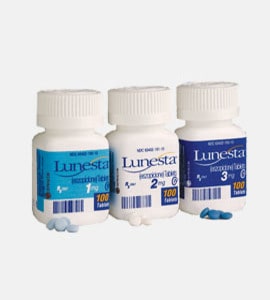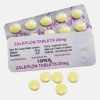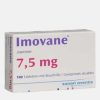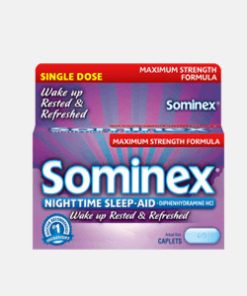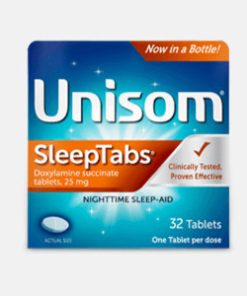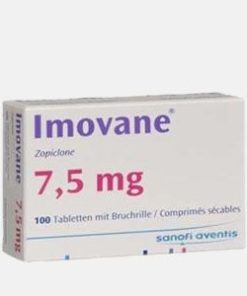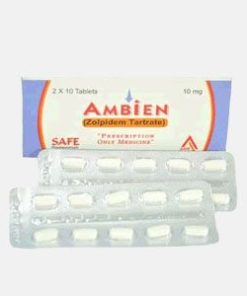Lunesta (Eszopiclone)
$112.00
Category: Sleep Aid
Commercial Name: Lunesta
Active Ingredient: Eszopiclone
Utilization: Used to treat a certain sleep problem (insomnia)
Available Dosages: 2mg
| Dosage | Quantity | Price | |
|---|---|---|---|
| 2 mg | 30 pills | $112.00 | |
| 2 mg | 60 pills | $138.00 | |
| 2 mg | 90 pills | $165.00 | |
| 2 mg | 120 pills | $203.00 | |
| 2 mg | 180 pills | $240.00 | |
| 2 mg | 270 pills | $405.00 | |
| 2 mg | 360 pills | $480.00 | |
| 3 mg | 30 pills | $112.00 | |
| 3 mg | 60 pills | $138.00 | |
| 3 mg | 90 pills | $165.00 | |
| 3 mg | 120 pills | $203.00 | |
| 3 mg | 180 pills | $240.00 | |
| 3 mg | 270 pills | $405.00 | |
| 3 mg | 360 pills | $480.00 |
Lunesta (Eszopiclone) is a sleeping pill that belongs to the class of sleeping pills known as non-benzodiazepine hypnotics. It is used in the treatment of primary sleep disorders, which are caused by difficulties with falling asleep, night and early awakenings. It is also used to treat transient situational and chronic forms of insomnia. In addition, Lunesta (Eszopiclone) is taken to cope with secondary sleep disorders caused by mental disorders.
Indication for use
Lunesta (Eszopiclone) can be taken by almost all adults who have severe sleep disorders: situational and temporary insomnia.
Precautions
Lunesta (Eszopiclone) is not recommended to use if you have:
• hypersensitivity to zopiclone or to any components of the drug;
• respiratory failure;
• sleep apnea syndrome;
• severe, acute or chronic liver failure (due to the risk of encephalopathy);
• myasthenia;
• allergic to wheat products (except for wheat intolerance with celiac disease).
Taking of Lunesta in case of pregnancy or within the lactation period should be administrated by your doctor.
Dose and usage
Lunesta (Eszopiclone) is released in form of tablets: 1 mg – light blue, round, film-coated with “S190” inscription; 2mg – white, round, film-coated, and identified with with “S191” inscription; 3 mg – dark blue, round, film-coated, and identified with with “S193” inscription.
This medication is taken orally for short-term use only. Usual Adult Dose for Insomnia: Initial dose: 1 mg orally before sleeping; Maintenance dose: 1 to 3 mg orally before sleeping; Maximum dose: 3 mg orally before sleeping.
Side effects
Taking Lunesta (Eszopiclone) can cause a bitter or metallic taste in the mouth, gastrointestinal upsets, mental disorders, confusion, irritability and allergic reactions, drowsiness, fatigue, headache, dizziness, , depressed mood, muscle weakness, impaired coordination of movements, diplopia, memory impairment, vomiting, skin allergic reactions, changes in libido, anterograde amnesia. Lunesta can trigger drug addiction, withdrawal syndrome, including rebound.
If during the treatment the patient has unusual symptoms, then he/she should immediately consult with attending physician.
Related products
Sleep Aid
Sleep Aid
Sleep Aid
$172.00
Sleep Aid
$309.00
Sleep Aid
$233.00

